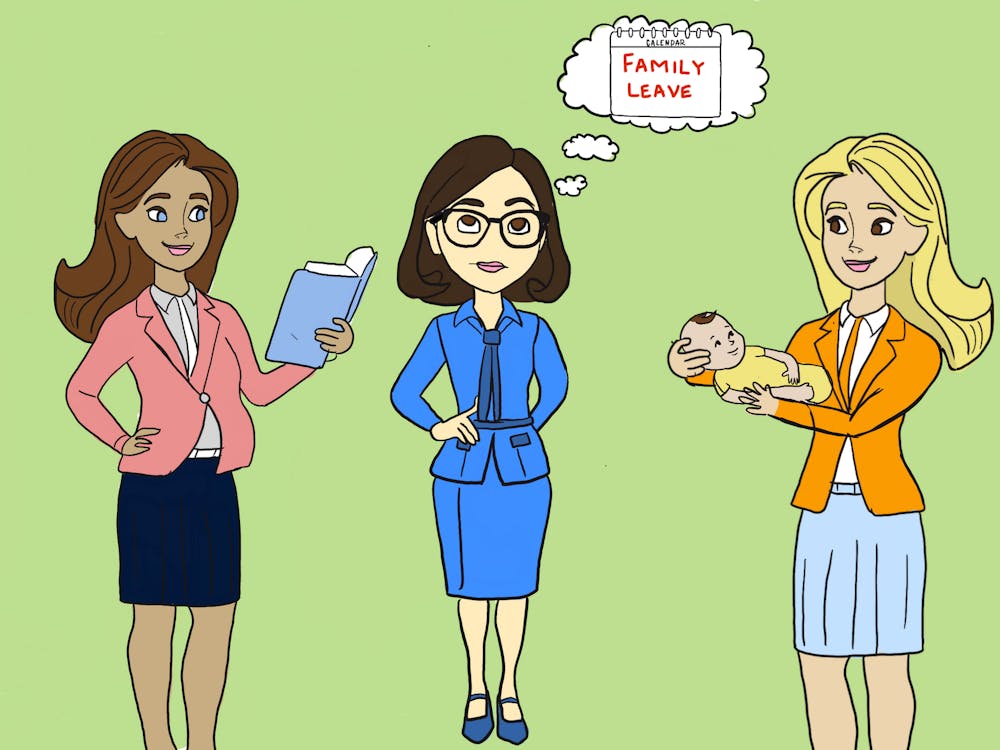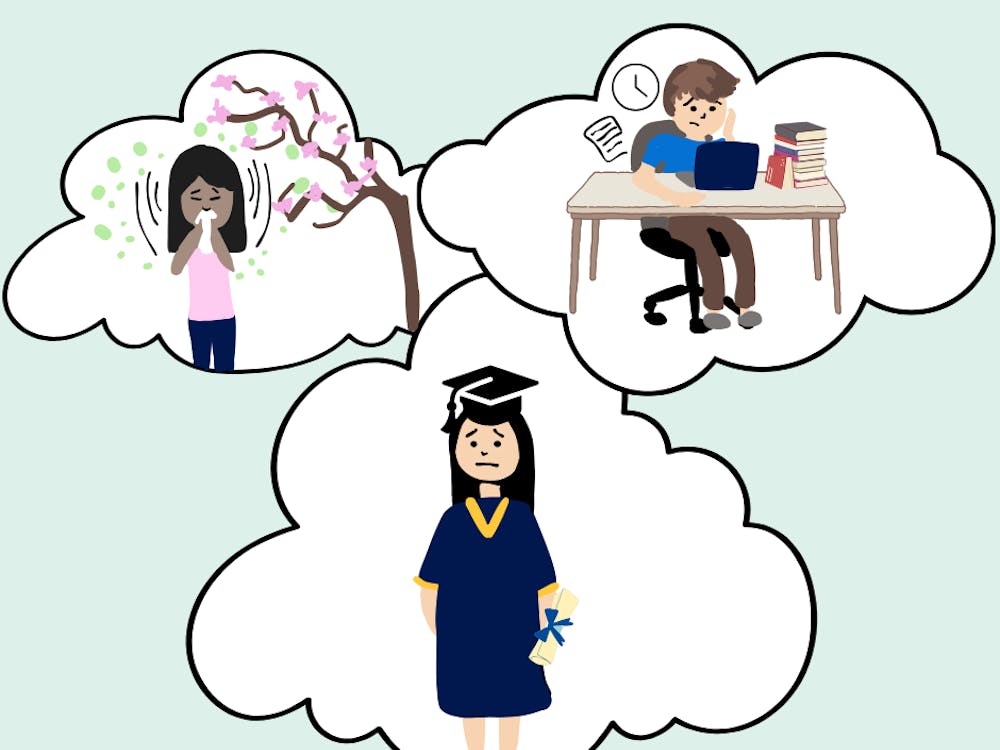Thursday was a beautiful day for sitting at a table outside Boylan and enjoying a celebratory lunch to mark the end of weeks of merciless midterms. A friend and I had spent a few minutes catching up before our waitress, who I soon learned was a good friend of my lunch partner, arrived to take our orders.
“How are you?” my friend asked the waitress. “Are you still seeing that guy?”
What ensued was an unsettling series of reactions. When I say her reaction was unsettling, I mean in the sense that it was eerily representative of a number of concerns I’ve been harboring recently.
First, she exhaled aggressively and said, “We broke up last night.” When my friend and I responded with the standard widened, pity-filled eyes — the universal look of ‘oh-no-so-sorry-to-hear-that-are-you-ok-do-you-wanna-talk-about-it?’ — she informed us it was no loss because said guy had kind of reminded her of a troll anyways. Fair enough, right?
She then detailed for us, in an unreasonably accurate imitation of troll-like behavior, the way his lips would curl when he snarled at her and how his jaw would protrude toward her disapprovingly. She closed her monologue with a bit of biting epithetical wisdom in the form of, “Never settle.”
She said this twice. When she said it the second time, she looked at me — or, rather, looked directly into my soul, because she may or may not have been a divine apparition created to warn me against dating folkloric, cave-dwelling creatures (duly noted, of course — glad someone up there is looking out for me) — and punctuated her words: “Never. Settle.”
Whether that waitress was sent to protect me from the inclination toward mythical creatures she seemed to think I house, her sentiment was ominously aligned with my recent contemplation of my own fear of monogamy.
To contextualize: on the list of trepidations which haunt the dark corners of my existence, some notable items include ghost stories, bad tattoos, the possibility of being that one person who gets hit by a train while crossing the tracks behind the Corner, microeconomics and monogamy.
I’ve been prompted on a number of occasions to investigate this crippling fear. I usually rely on the idea that I simply can’t imagine nurturing any form of consistency in my fast-paced college lifestyle which seems to radically change direction on a weekly basis. This explanation has felt inadequate lately, though. There has to be something more substantial at work. On that note, cue introspective monologue in three, two…
To begin with, I think a distinct relationship binary exists between exclusive and non-exclusive. You’re either open to seeing other people or you’re not. The floodgates are open or closed.
Sure, there are relationships which fall into a gray area — those people who are “definitely more than friends" but not sure what exactly they are — but when it comes to being “exclusive” specifically, you’re either in or you’re out.
And that’s scary to me. It’s like the difference between reckless speeding and remaining stationary. It’s the difference between peeking over the precipice and actually jumping. The conversation surrounding exclusivity in relationships strikes me as excessively black and white — and once you go from zero to 100, it’s unsettlingly hard to slow down.
Further, I think monogamy in college is too often accompanied by a constant lingering fear of missing out. Regardless of which side of the relationship dichotomy I’m on, I think I’m always going to be haunted by what the other side could offer me.
Perhaps most importantly, I feel an adamant aversion to the idea of becoming half of a whole. As young adults on the brink of complete independence, we’re constantly asked to be discerning our identities. And the idea of relinquishing all the effort I’ve put into becoming uniquely and unequivocally ‘me,’ for the sake of taking on a shared identity with someone else, irks me.
I want to be Victoria. I don’t want to be Victoria and her boyfriend so-and-so. I want to be greeted with “Hi, Victoria,” and not “Hey Victoria, where’s so-and-so?” because that feels an awful lot like being asked, “Where’s the rest of you?”
Of course, that perception could be interpreted as excessively cynical. You could argue that rather than rendering you a mere half of a whole, relationships provide for you the opportunity to partake in a pleasant integration of two unique, fulfilled whole identities. That’s fair.
But at the same time, we’d be lying to ourselves if we didn’t admit we see people who are in committed relationships as separate from the demographic of single students. Those individuals have very different lifestyles compared to those of single students, and I think it’s clear we regard them as such. It can be a pretty ostracizing distinction and that, again, is scary to me.
Given these implications, I don’t think it’s unreasonable for me to hesitate to commit to a romantic relationship at this stage in my life. And I know personally what it is to have to look at someone and tell him I changed my mind, that I have to stop speeding, that I’d like to take back my jump and return to my home on the precipice. It’s not fun for any party involved.
Thus, all things considered, are those who fear romantic commitment really to be blamed for their apprehension? Or are we just reacting naturally to the objectively daunting circumstances monogamy presents?
Victoria’s column runs biweekly Tuesdays. She can be reached at v.moran@cavalierdaily.com.







